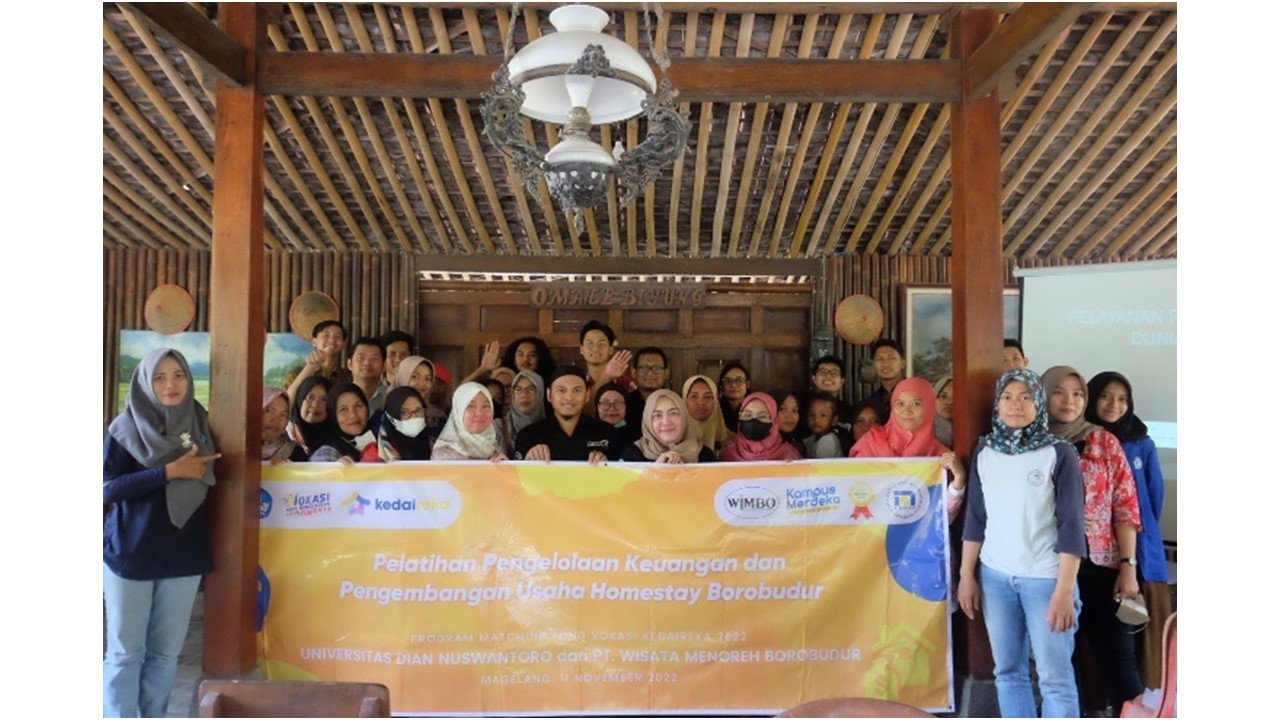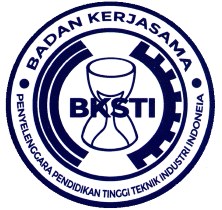Community Empowerment Through Financial Management Training and Business Development of The Borobudur Homestay in Candirejo Village, Magelang District
DOI:
https://doi.org/10.12928/spekta.v4i1.7735Keywords:
Community empowerment, SAK EMKM, Community-based Tourism, BorobudurAbstract
Background: Community-based tourism is increasingly being considered a more sustainable alternative. Tourism Villages can be a step towards realizing sustainable tourism. This is because the tourism village has the opportunity to open up as much participation as possible for the local community. However, this does not mean anything if managers, including accommodation providers, need qualified organizational and financial management skills.
Contribution: This activity aims to provide knowledge to homestay managers in Candirejo Village to properly manage business finances based on SAK EMKM (Standar Akuntansi Keuangan Entitas Mikro, Kecil, dan Menengah)
Method: The method used by researchers is through training and empowerment of homestay managers
Results: The result of this activity is an increased understanding of SAK EMKM in Candirejo Village. After the training, homestay managers have also started implementing SAK EMKM in their financial reports. As a result, the financial position can be monitored, financial leaks can be minimized, and homestay business management can be carried out more effectively and efficiently.
Conclusion: The activities that were held went well. This is known from the excellent understanding of SAK EMKM after the training was given
References
Y. Heryati, “Potensi Pengembangan Obyek Wisata Pantai Tapandullu Di Kabupaten Mamuju,” GROWTH J. Ilm. Ekon. Pembang., vol. 1, no. 1, pp. 56–74, 2019.
E. O. Primadani, “Dampak Asean Tourism Forum (Atf) Terhadap Perekonomian Indonesia Menurut Perspektif Islam.” Uin Raden Intan Lampung, 2018.
M. A. Islam, “Peran Brand Borobudur Dalam Pariwisata Dan World Heritage,” Dewa Ruci J. Pengkaj. Dan Pencipta. Seni, Vol. 8, No. 3, 2013.
D. Kusiawati, “Pemberdayaan Masyarakat,” Pendidik. Luar Sekol., Vol. 2, No. 1, Pp. 59–72, 2017.
A. Machfuzhoh, “Pendampingan Pengelolaan Keuangan Bagi Masyarakat Desa Wisata Kampung Bambu Desa Banyuresmi Pandeglang,” J. Pengabdi. Dan Peningkatan Mutu Masy., Vol. 1, No. 1, Pp. 88–94, 2020.
S. Kusuma, D. Ernawati, And Maskur, “Kajian Terkait Isu Pembangunan Kawasan Strategis Nasional Borobudur,” Bappeda Kab Magelang, Pp. 1–8, 2019.
A. Hidayat And V. Husni, “Peran Geopark Rinjani Lombok Sebagai Pilar Pariwisata Berkelanjutan Di Nusa Tenggara Barat,” J. Ilm. Hosp., Vol. 11, No. 2, Pp. 581–596, 2022.
A. Risman, B. Wibhawa, And M. Fedryansyah, “Kontribusi Pariwisata Terhadap Peningkatan Kesejahteraan Masyarakat Indonesia,” Pros. Penelit. Dan Pengabdi. Kpd. Masy., Vol. 3, No. 1, 2016.
R. Rustini, “Pelayanan Tuan Rumah Homestay Dalam Mendukung Pengembangan Pariwisata Berbasis Masyarakat (Community Based-Tourism) Di Desa Wisata Wates Jaya, Kabupaten Bogor,” Destin. J. Hosp. Dan Pariwisata, Vol. 3, No. 1, Pp. 50–60, 2021.
M. Farhan, A. Novriansa, U. Kalsum, And M. Mukhtaruddin, “Pengenalan Akuntansi Bagi Usaha Mikro Kecil Dan Menengah (Umkm) Di Desa Kota Daro, Kabupaten Ogan Ilir,” Sricommerce J. Sriwij. Community Serv., Vol. 1, No. 1, Pp. 47–54, 2020.
R. Lumbangaol, “Pengelolaan Keuangan Bagi Usaha Mikro Kecil Menengah (Umkm) Di Desa Hutapaung Kecamatan Pollung,” Devotionis, Pp. 16–20, 2022.
R. Farwitawati, “Pengelolaan Keuangan Bagi Usaha Mikro Kecil Menengah (Umkm) Di Kelurahan Airputih Kecamatan Tampan Kota Pekanbaru,” Pros. Sembadha, Vol. 1, Pp. 225–229, 2018.
D. Wulandari And F. I. Arza, “Faktor-Faktor Yang Mempengaruhi Implementasi Sak Emkm Pada Umkm Kota Padang,” J. Eksplor. Akunt., Vol. 4, No. 3, Pp. 465–481, 2022.
V. Adryant And M. R. Rita, “Pemahaman Sak Emkm, Sosialisasi Laporan Keuangan Dan Penerapan Sak Emkm Dengan Moderasi Ukuran Usaha,” J. Akunt., Vol. 15, No. 2, Pp. 54–65, 2020.
P. A. Putri, K. D. C. Putra, I. M. Widiantara, And N. I. K. Dewi, “Efektivitas Humas Pt Angkasa Pura I (Persero) Bali Dalam Mengkomunikasikan Csr,” J. Bisnis Dan Kewirausahaan, Vol. 17, No. 2, Pp. 158–165, 2021, Doi: 10.31940/Jbk.V17i2.2610.
M. A. Purba, “Analisis Penerapan Sak Emkm Pada Penyusunan Laporan Keuangan Umkm Di Kota Batam,” J. Akunt. Barelang, Vol. 3, No. 2, Pp. 55–63, 2019.
A. Damajanti And C. Safitri, “Penyusunan Laporan Keuangan Berbasis Sak Emkm Pada Umkm Lia Collection Di Kota Semarang,” Literasi J. Pengabdi. Masy. Dan Inov., Vol. 2, No. 1, Pp. 173–180, 2022.
Iai, “Standar Akuntansi Keuangan Entitas Mikro, Kecil, Dan Menengah,” Sak Emkm Ikat. Akuntan Indones., No. 4, Pp. 1–54, 2016.
P. Septa, “Pengaruh Penyajian Laporan Keuangan Dan Aksesibilitas Laporan Keuangan Terhadap Akuntabilitas Pengelolaan Keuangan Kabupaten Ponorogo.” Universitas Muhammadiyah Ponorogo, 2018.
A. Sholikin And A. Setiawan, “Kesiapan Umkm Terhadap Implementasi Sak Emkm (Studi Umkm Di Kabupaten Blora),” Jifa (Journal Islam. Financ. Accounting), Vol. 1, No. 2, Pp. 35–50, 2018.
N. K. I. Dewi, N. T. Herawati, S. E. Ak, And A. T. Atmadja, “Penyusunan Laporan Keuangan Sesuai Dengan Standar Akuntansi Keuangan Entitas Mikro, Kecil, Dan Menengah (Sak Emkm) Pada Usaha Ternak Ayam Boiler (Study Kasus Pada Usaha I Wayan Sudiarsa Desa Pajahan Kecamatan Pupuan Kabupaten Tabanan),” Jimat (Jurnal Ilm. Mhs. Akuntansi) Undiksha, Vol. 8, No. 2, 2017.
H. Sularsih And A. Sobir, “Penerapan Akuntansi Sak Emkm Dalam Penyusunan Laporan Keuangan Pada Umkm Kecamatan Lowokwaru Kota Malang,” Jamswap, Vol. 4, No. 4, Pp. 10–16, 2019.
D. M. Siregar, “Penerapan Sak Emkm Para Pelaku Usaha Mikro Kecil Dan Menengah (Umkm) Menuju Pengembangan Revolusi Industri 4.0 (Studi Pada Umkm Di Kabupaten Sidoarjo),” J. Paradig. Ekon., Vol. 16, No. 4, Pp. 669–678, 2021.
A. P. Alam And M. R. Rita, “Penerapan Sak Emkm Pada Umkm: Survei Pada Umkm Yang Berada Di Kecamatan Tingkir, Salatiga,” J. Visi Manaj., Vol. 8, No. 1, Pp. 15–29, 2022.
L. D. Anggraini And W. Rosalina, “Pelatihan Penyusunan Laporan Keuangan Berbasis Sak Emkm Pada Pelaku Usaha Clothing Line,” Din. J. Pengabdi. Kpd. Masy., Vol. 6, No. 2, Pp. 540–546, 2022.

Downloads
Published
How to Cite
Issue
Section
License
Copyright (c) 2023 Imang Dapit Pamungkas , Dian Hapsari, Emik Rahayu , Izza Ulumuddin Ahmad Asshofi , Joseph Aldo Irawan , Aji Kusumah Ramdhani Ramdhani , Karis Widyatmoko , Ibnu Utomo Wahyu Mulyono , Nurjanah

This work is licensed under a Creative Commons Attribution-ShareAlike 4.0 International License.
Authors who publish with SPEKTA (Jurnal Pengabdian Kepada Masyarakat: Teknologi dan Aplikasi) agree to the following terms:
- Authors retain copyright and grant the journal the right of first publication with the work simultaneously licensed under a Creative Commons Attribution License (CC BY-SA 4.0) that allows others to share the work with an acknowledgment of the work's authorship and initial publication in this journal.
- Authors are able to enter into separate, additional contractual arrangements for the non-exclusive distribution of the journal's published version of the work (e.g., post it to an institutional repository or publish it in a book), with an acknowledgment of its initial publication in this journal.
- Authors are permitted and encouraged to post their work online (e.g., in institutional repositories or on their website) prior to and during the submission process, as it can lead to productive exchanges, as well as earlier and greater citation of published work.

This work is licensed under a Creative Commons Attribution-ShareAlike 4.0 International License.












